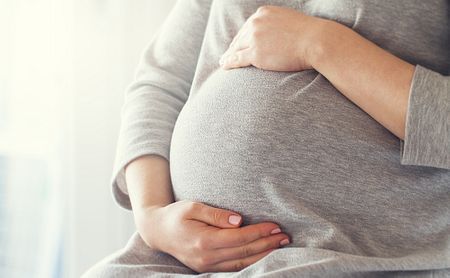Sarcoidosis Linked to Higher Risk for Some Pregnancy Complications, Study Shows
Written by |

Sarcoidosis is associated with a higher risk for certain complications in pregnancy, according to data from a Swedish population-based study.
These complications include eclampsia — the onset of seizures in pregnant women — and preeclampsia or high blood pressure in the mother, cesarian delivery, preterm birth, and some birth defects, the data showed.
The study, “Maternal and infant outcomes in sarcoidosis pregnancy: a Swedish population-based cohort study of first births,” was published in the journal Respiratory Research.
Several systemic inflammatory disorders carry increased risks of complications during pregnancy, but few studies have examined the risk of adverse maternal and infant outcomes in sarcoidosis.
Although some individual case reports have described adverse outcomes in pregnancies where sarcoidosis was involved, only one group study has been conducted.
That study, which took place in the United States and was published in 2015, suggested that “sarcoidosis was associated with an increased risk of preeclampsia, eclampsia, cesarean delivery, postpartum hemorrhage, and venous thromboembolism (VTE)” and that “infants born to women with sarcoidosis were more likely to be premature and have intrauterine growth restriction,” the researchers wrote.
However, the study did not take into account the past history of sarcoidosis and did not record how many births a woman had experienced prior to it.
Here, researchers from the Karolinska Institutet, in Sweden, argued that birth number — parity — matters because the risk of adverse outcomes varies depending on whether a patient is giving birth for the first time or not.
Several complications are typically more common in a first pregnancy, thus the researchers investigated only first births in women with sarcoidosis. The team used Sweden’s national Medical Birth Register (MBR) to track births between 2002 and 2013. They identified 182 singleton first pregnancies — those in which only one child was born — in which the mother had at least two sarcoidosis-related visits prior to pregnancy.
For comparison, the researchers analyzed 6,630 pregnancies during that same time period not involving sarcoidosis.
Pregnant women with sarcoidosis tended to be slightly older than women without the disease (ages 32 vs. 31), and were more likely to have a history of diabetes (2.2% vs. 1.2%) and hypertension (5.5% vs. 1.5%).
The results showed that women with sarcoidosis had higher rates of preeclampsia/eclampsia than the general population — 9% vs. 5%, representing a 1.6-times increased risk.
The relative risk of a cesarian section increased by 1.3 times in pregnancies involving sarcoidosis, and the risk of pre-term delivery increased by 1.7 times.
The pregnancies that involved sarcoidosis also had higher rates of major non-chromosomal birth defects than those in the general population — 6.1% vs. 3.7%, for a 1.6-times increased risk.
Although rates of cardiac birth defects were similar between the groups, pregnancies involving sarcoidosis resulted in higher rates of non-cardiac irregularities (5% vs. 2.1%). These largely involved the babies’ eyes, ears, faces, necks, and digestive systems.
The study did not find increased risks of gestational hypertension, the need to operate during vaginal deliveries, postpartum bleeding, or infection within three months after birth.
No cases of maternal death were reported, and fewer than five cases of stillbirth, gestational diabetes, and infection were reported among women with the disorder.
Women with sarcoidosis in this study took few disease-related medications during pregnancy. Oral glucocorticoids were given to 7.9% of these women at any time during pregnancy, and 5.7% were given oral glucocorticoids within the three months prior to pregnancy. Those rates suggest that few of the women in this study had cases that required treatment.
The researchers noted, however, that medication rates rose in the four to six months after delivery, potentially indicating sarcoidosis relapses.
“This should be investigated further in a larger study with information on disease activity,” they wrote.
Overall, based on the results, the researchers recommend that mothers with sarcoidosis and their physicians should be aware of the risks for potential pregnancy complications.
“Sarcoidosis is associated with increased risks for preeclampsia/eclampsia, cesarean delivery, preterm birth and some birth defects. Awareness of these conditions may prevent possible pregnancy complications in mothers with sarcoidosis and their newborns,” the team concluded.





